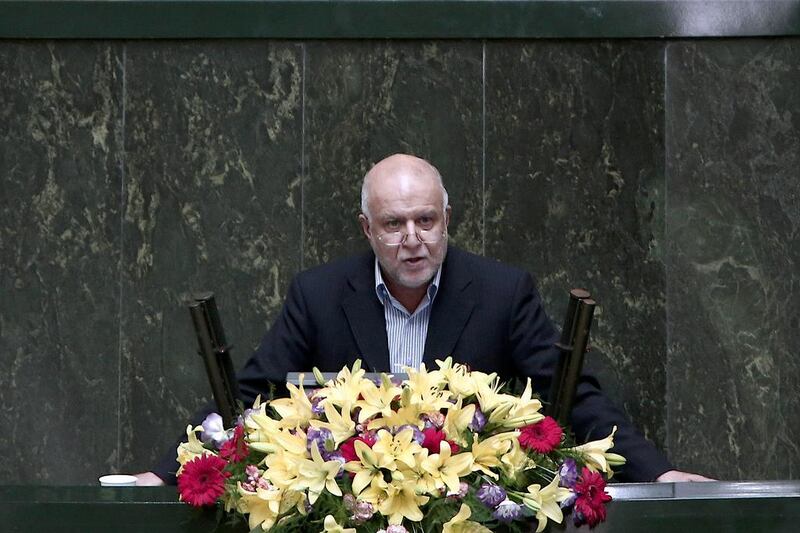Iran’s oil minister is set to have talks with his UAE counterpart on Tuesday in Abu Dhabi amid progress on nuclear talks which could result in a lifting of sanctions that has kept a large portion of Iran’s oil production off the world markets for several years.
Bijan Namdar Zanganeh, Iran’s oil minister, will meet the UAE Minister of Energy, Suhail Al Mazrouei, in Abu Dhabi on Tuesday, Iran’s official news agency reported.
Top of the agenda in Abu Dhabi will be measures that Opec, which has a ministerial meeting scheduled for November 27 in Vienna, can take to deal with a sharp decline in oil prices since the summer.
The lifting of long-standing sanctions against Iran, which has kept about 1 million barrels per day of its oil off world oil markets since mid-2012, would add to Opec’s headaches, which have included a surge in supply from North America and weaker demand in Asia, especially China.
The oil ministers are meeting as the November 24 deadline for Iran nuclear talks approaches. Diplomats from Iran, the US and other major powers will meet in Vienna then to try to reach a comprehensive agreement that would result in Iran abandoning any non-peaceful nuclear ambitions in exchange for a lifting of sanctions. While officials involved in the talks have reported significant progress, the ultimate decision is a political one for Iran and US diplomats give it a 50/50 chance of resolution by the deadline.
Even if a deal is reached, Iran would need time to get its oil production back to pre-sanctions levels of 4 million bpd.
“There are two big questions that will need to be answered, if we assume that sanctions will be lifted,” said Paul Stevens, a fellow at the Royal Institute of International Affairs in London.
“How much damage has been done to the fields by closing them in during sanctions and suspending investment? And how will Iran attract the big international oil companies back in to invest a lot of money?”
Last week at Adipec, both Bob Dudley, the chief executive of BP, and Arnaud Breuillac, the head of upstream at France’s Total, said that their firms would be interested in returning to Iran if sanctions were lifted, but that a decision to invest would depend on Iran offering attractive terms.
Iran alienated western companies in the 1990s with unattractive “buy back” contract terms and its oil minister had promised to announce the format for new contracts earlier this year, then again earlier this month, but now is not expected to set out the terms until February.
Iran faces a difficult task to attract oil companies after a long history of stop-start, and at a time when many of them are cutting capital expenditures on new projects because of the outlook on oil and gas prices.
amcauley@thenational.ae
Follow The National's Business section on Twitter





